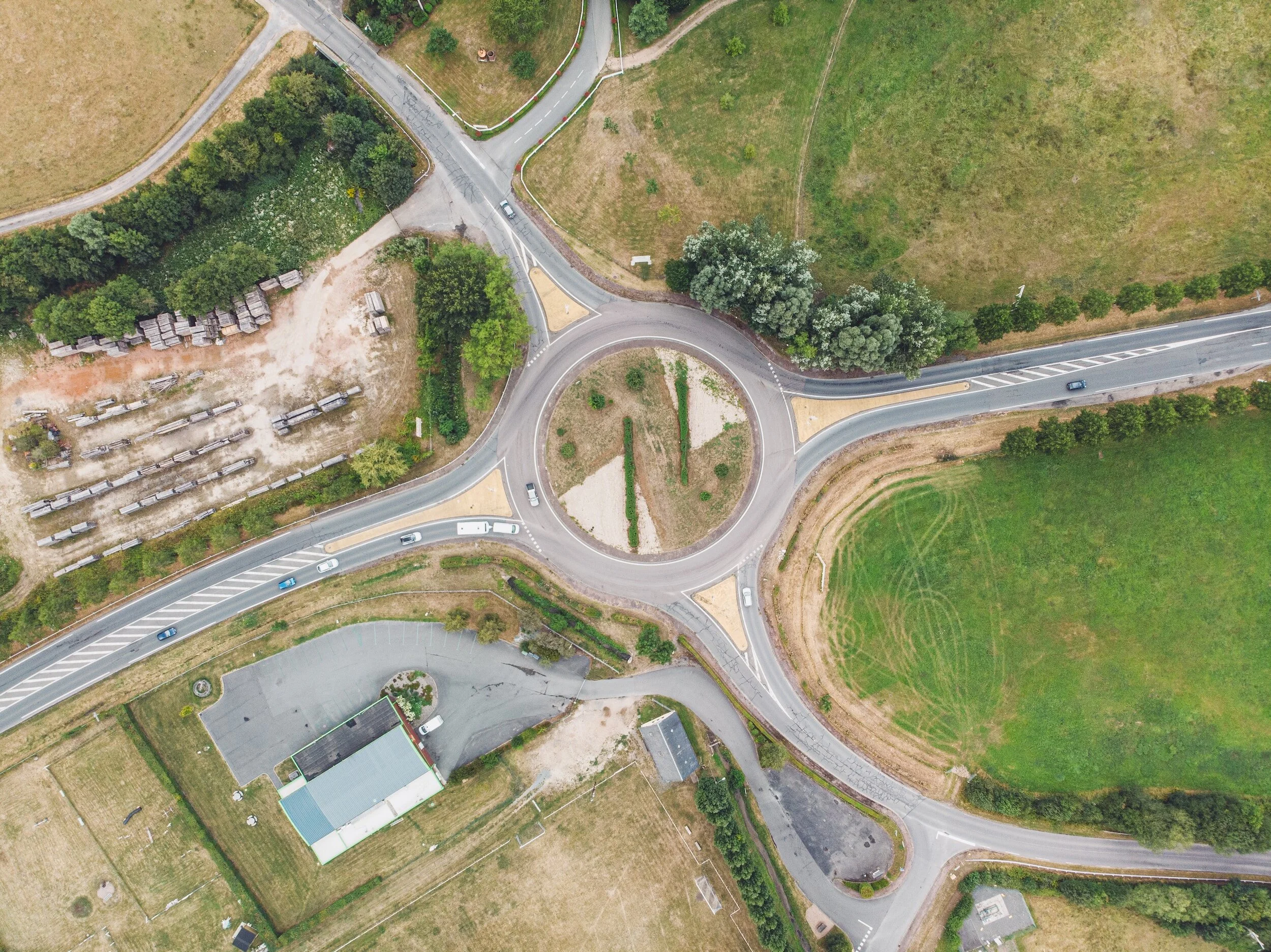Family Safety First: Understanding Arizona's New Roundabout Laws
Fellow travelers and families of Arizona! With our daily routines and commutes, ensuring the safety of our loved ones on the road is paramount. We have crucial updates about changes in our state's driving laws, particularly concerning roundabouts.
On October 30th, 2023, Governor Katie Hobbs enacted a new law, House Bill 2288, which amends the Arizona Revised Statute, specifically ARS 28-778. This law focuses on the right-of-way for larger vehicles within roundabouts. As areas like Prescott continue to develop, roundabouts are becoming increasingly prevalent. Let's delve into what this means for our family drives:
Arizona Revised Statute 28-778 Explained:
Yielding to Larger Vehicles: If you're nearing or inside a roundabout and encounter a vehicle (or combination of vehicles) that's at least forty feet long or ten feet wide, you must yield the right-of-way. This primarily refers to sizable trucks or extended trailers. If such a vehicle is already in the roundabout with you or poses an immediate hazard, it's advised to slow down or stop. However, if you're in the roundabout and a large vehicle is about to enter, you have the right of way.
When Two Large Vehicles Meet: If two large vehicles (each at least forty feet long or ten feet wide) approach or are in the roundabout concurrently, the vehicle on the right should yield to the one on the left, akin to the "right-hand rule" but tailored for larger vehicles.
Understanding the Changes:
Navigating roundabouts can be a bit of a dance, especially when larger vehicles are involved. With the recent changes in Arizona's driving laws, there's been a renewed focus on ensuring safety for all road users, particularly in roundabouts. Let's delve deeper into what these changes mean and how they differ from the previous regulations.
The Previous Landscape:
Before the introduction of the new provisions in ARS 28-778, the rules around roundabouts were more general. All vehicles, regardless of their size, were expected to follow the basic right-of-way rules. This meant that vehicles already in the roundabout had the right of way over those entering. There wasn't a specific focus on larger vehicles.
The new changes:
The recent amendments to Arizona Revised Statute 28-778 bring a more nuanced approach to handling larger vehicles in roundabouts:
Size Matters: The new law takes a more nuanced approach by specifically addressing vehicles based on their dimensions. Unlike before, where all vehicles were treated the same, the law now differentiates between regular-sized vehicles and those that are notably larger. This distinction is crucial because larger vehicles, such as big rigs, buses, or extended trailers, often have a harder time maneuvering within the confined spaces of a roundabout. Their size can make it challenging to navigate tight turns, and their extended length means they occupy the roundabout for a longer period of time. By recognizing these challenges, the law aims to create a safer environment for all road users.
Yielding to the Big Guys: Larger vehicles not only have a more extended footprint but also have limited visibility and reduced agility compared to smaller vehicles. Recognizing these inherent challenges, the law has been tailored to give them a bit of an advantage in specific scenarios. When these larger vehicles are in or approaching a roundabout, other vehicles are now mandated to yield the right-of-way to them in certain situations. This emphasis ensures that larger vehicles, which might need extra time or space to navigate the roundabout, can do so safely without the added pressure of other vehicles trying to overtake or cut in front of them.
Exceptions to the rule: Exceptions to the rule: While the law emphasizes the importance of yielding to larger vehicles, it also understands the need to maintain a smooth and efficient flow of traffic. Therefore, there are specific scenarios where vehicles already inside the roundabout do not have to yield to larger vehicles approaching the roundabout. This provision ensures that traffic within the roundabout isn't unduly halted or disrupted, which could lead to congestion or even potential rear-end collisions. By outlining these exceptions, the law strikes a balance between ensuring safety and maintaining a steady traffic flow.
Why this matters:
These changes might seem subtle, but they have a profound impact on road safety. Larger vehicles have limited visibility and reduced agility. By giving them the right of way in specific scenarios, the law aims to reduce potential conflicts and accidents in roundabouts. It's a proactive approach that recognizes the diverse range of vehicles on our roads and seeks to create a harmonious driving environment for all. While the essence of roundabout navigation remains the same, the new laws bring attention to the unique challenges posed by larger vehicles. As always, the goal is to ensure safety for everyone on the road. So, the next time you approach a roundabout, keep an eye out for those big trucks and trailers, and drive safely!
A Final Note: Safety always comes first! Roundabouts, while designed for smooth traffic flow, can be challenging. Let's stay informed about these new laws, drive safely, and remain courteous to fellow motorists. We're all on this journey together, ensuring safety for every family. Safe driving, everyone! 🚗💕



